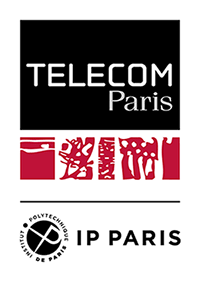Selected Presentations
Quantum Sensing and Information-Theoretic
Foundations
Tutorial at Communication Theory Workshop 2025 2024.
An Information-Theoretic View of Integrated Sensing and Communications (ISAC)
Tutorial at SPAWC 2024.
Capacity-Tradeoffs in Networks with Mixed-Delay
Traffics and Random Arrivals
Workshop ``Performance Guarantees in Wireless Networks", Telecom Paris, March 2023.
Strong and epsilon-Dependent Converses
for Source Coding, Channel Coding, and
Hypothesis Testing
ETH Zurich and University of Cambridge, Oct. 2022.
Information-Theoretic Schemes for Integrated
Sensing and Communication (ISAC)
King's College and Imperial College, Oct. 2022.
Coding for Sensing
Virtual Workshop on Information Theoretic Limits and Signal Processing Techniques for Integrated Sensing and Communication, Jan. 2022.
Information-Theoretic Tradeoffs in
Distributed Hypothesis Testing
University of Zurich, Nov. 2021, Zurich, Switzerland.
MIMO Optical Communication In Freespace
Bombay Information Theory Seminar 2020, Jan 2020, Mumbai, India.
Networks with Mixed Delay Constraints
London Symposium on Information Theory, May 2019, London, UK
Caching Networks: Low-Subpacketization Schemes and Improved Delivery Methods
Workshop on Signal Processing, Communications, and Information Theory, Sep. 2018, La Coruna, Spain.
Distributed Hypothesis Testing: Unequal Error Protection and Concurrent Detection
Digiteo Research Days, June 2018, Paris Saclay, France.
Distributed Hypothesis Testing in Networks
Horizon Maths Workshop, Nov 2017, Paris, France.
Additional Coding Opportunities in Cache-Aided Networks
WiOpt, May 2017, Paris, France.
Cache Allocations, Coding Schemes, and Converses for Cellular Networks with Cachinge
Ben Gurion University, Nov. 2016, Beer Sheva, Israel.
Testing Against Independence with Multiple Decision Centers
Int. Conference On Signal Processing And Communications, June 2016, Bangalore, India.
Information-Theoretic Results on D2D Networks
Indo-French Workshop on D2D, June 2016, Paris France.
An Information Theoretic View of Cache-Aided Networks
Iran Workshop on Communication and Information Theory, May 2016, Teheran, Iran.
An Information Theoretic View of Cache-Aided Communication, Compression, and Computation Systems
Keynote talk at GlobalSIP, Dec. 2015.
Constrained Intra-Cell and Inter-Cell Cooperation in Cellular Networks
ETH Zurich, August 2015.
Coordination in State-Dependent Networks: The Two-User Case
ISIT 2015.
Communication, Compression, and Coordination over Networks: Benefits of Cooperation and Side-Information
Habilitation Exam; July 2015.
Broadcasting with Side-Information and Applications to Caching and Feedback Communication
Huawei Algorithmic Research Lab; ETIS ENSEA-Université de Cergy-Pontoise; INSA Lyon; May--Sep. 2015.
How Rate-Limited Feedback Increases Capacity for Memoryless Broadcast Channels
EPF Lausanne; Supelec; Feb. 2014.
Schemes and Achievable Rates for Broadcast
Channels with Rate-Limited Feedback
ETH Zurich, Aug. 2013.
Variations of Source Coding with Side-Information at the Decoder(s)
Chalmers University of Technology Gothenburg, May 2013.
Max-Entropy Results under Markov Conditions and Applications to Capacity Problems
Technion-The Israel Institute of Technology, June 2011.
Constrained Wyner-Ziv Source Coding
Technical University Munich, Mar. 2011.
An Achievable Region for the Discrete Memoryless Broadcast Channel with Feedback
ISIT 2010.
Gaussian Multiple-Access Channels with Cooperating Transmitters
Stanford University; UC Berkeley; 2009
Receivers-Transmitters Side-Information Duality in Linear Interference Networks
2009 ITA Workshop, Graduation Day; Qualcomm; 2009
Side-Information with a Grain of Salt
Harvard University;
Princeton University;
Telecom Paris-Tech (ENST); 2009
Cooperation on the Multiple-Access Channel
Chalmers University of Technology; ETH Zurich (PhD Defense); 2008
Wireless Networks with Imperfect Side-Information
Ecole Superieure d'Electricite (Supelec); KTH Stockholm; Chalmers University of Technology; 2008
On Cognitive Interference Networks
UC Berkeley, 2007
Noisy feedback is strictly better than no feedback
Kailath Colloquium on Feedback Communications 2006, Stanford University
